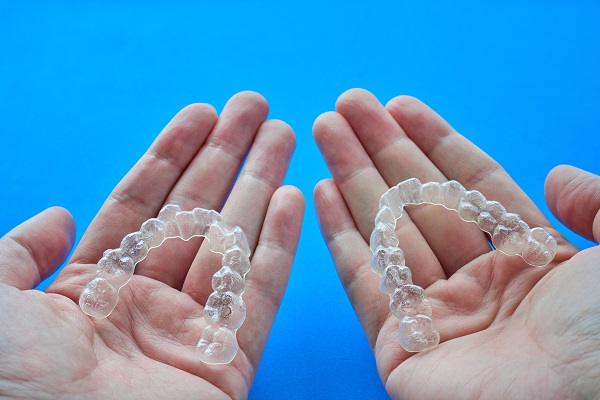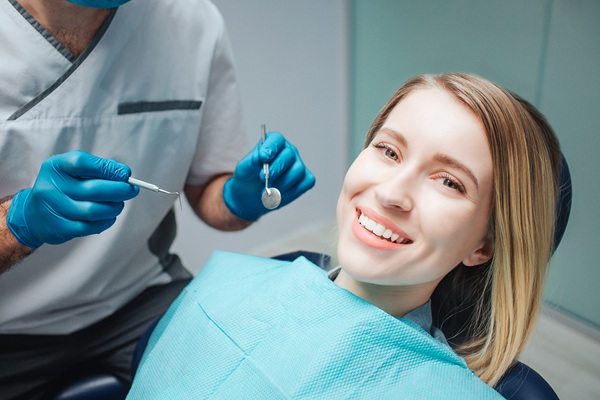How Long Will Invisalign Therapy from a General Dentist Take for Teeth Straightening

Invisalign® has become the standard for teeth straightening treatment due to the ease of the process and the many benefits it offers. Unlike traditional approaches such as braces, Invisalign® allows individuals to undergo an easy and flexible treatment process that also allows for discreetness!
A common question that arises when considering Invisalign® is how long the actual treatment process takes. Of course, this answer varies based on the person and other contributing factors. However, having a general idea can be helpful. Continue reading to find out more.
The timeline for Invisalign®
Below is an overview from a general dentist on how long Invisalign® treatment may take. This information can be helpful to review when looking into different teeth-straightening methods.
Generally speaking
In general, Invisalign® is usually worn for six months to a year and a half. This is actually the average time for most teeth straightening treatments. Of course, there are some cases in which Invisalign® may take longer to work. Keep reading to find out about specifics.
Specifics
Each person has varying needs when it comes to teeth straightening treatment. For example, individuals with extremely crowded teeth may need to wear the aligners for up to two years. In other cases, a different type of treatment may be required first and then Invisalign® can follow later on.
If the crowding or crookedness of the teeth is severe, the general dentist may recommend clear or traditional braces for a few months to start the teeth straightening process. To finish, Invisalign® can be worn for a year or so.
Things to know
When it comes to Invisalign® treatment, general dentists advise wearers to keep the aligners in for at least 22 hours a day. This ensures that the estimated timeline provided at the start will match the actual process. When the aligners are taken out for unnecessary activities, the entire process can be delayed.
Invisalign® should only be removed when eating and for oral hygiene, which should be done twice a day or after every meal. If there is a special occasion such as a social event or a photoshoot, it is okay to take the aligners out. However, be aware that the time should be made up to ensure the desired results are achieved.
While Invisalign® is not necessarily a quicker treatment than braces, general dentists do state that the more the aligners are worn, the more promising the results will be.
It is also important to know that Invisalign® may take longer than the estimate provided at the start. Some individuals' teeth do not shift as predicted and may require additional aligners to be created.
Talk to a general dentist
When considering Invisalign®, it is best to consult with a general dentist. An evaluation can be done to determine what type of orthodontic treatment is most suitable. Any questions or concerns about Invisalign® can be addressed, and the dentist can provide an estimated timeline upon approval of the treatment. To find out more or to get scheduled for an appointment, reach out today.
Request an appointment here: https://drclemente.com or call Matthew J. Clemente, DDS at (518) 599-7523 for an appointment in our Troy office.
Check out what others are saying about our dental services on Yelp: Invisalign in Troy, NY.
Recent Posts
A dental emergency can arise unexpectedly, causing pain, discomfort, and concern. Recognizing the signs of a dental emergency is crucial for receiving timely treatment and preventing further damage. Whether it is due to an injury, infection, or underlying dental issues, acting can often help save a tooth or prevent more severe complications. Here are three…
A restorative dentist does more than repair damaged teeth. These general, cosmetic, and family dentists play a key role in keeping the whole mouth healthy for the long term. They achieve this by keeping track of how teeth, gums, the bite, and the jaw joints work together, rather than focusing only on single problems. With…
Patients often search for root canal treatment when a tooth aches from deep decay, a crack, or inflamed pulp tissue. This therapy removes irritated nerve tissue, disinfects the canal space, and seals the tooth to prevent reinfection. By preserving the natural root, the procedure maintains bite balance and chewing strength. With careful planning, a restored…
Gum disease is a common yet often overlooked condition that affects millions of adults worldwide. It begins subtly, often without noticeable pain, making it a silent threat to both oral and overall health. Left untreated, gum disease can progress from mild inflammation to a severe infection, potentially leading to tooth loss and contributing to other…


